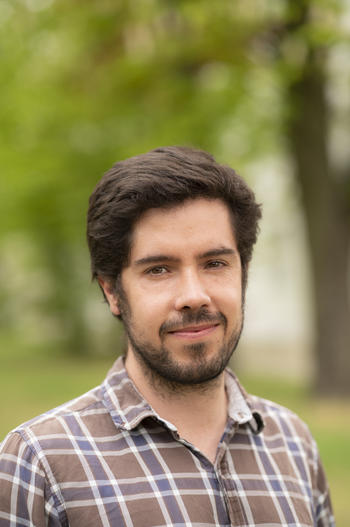Rodrigo Perujo

International Research Training Group 'Temporalities of Future in Latin America'
PhD Candidate
History
Project: "A city over the Time. Imaginaries and Aspirations of the Future in Mexico City after Independence (1820-1836)"
14195 Berlin
Education
|
Since 05/2022 |
PhD Candidate, International Research Training Group ‘Temporalities of Future’ |
|
08/2012 – 07/2014 |
Master in History, Universidad Nacional Autónoma de México |
|
08/2006 – 07/2010 |
Bachelor in History, Universidad Nacional Autónoma de México |
Work Experience
|
Since 05/2022 |
Researcher, International Research Training Group ‘Temporalities of Future’ |
|
10/2021 – 04/2022 |
Research stay at the LAI-FU, with the project "Popular Politics after Independence. Mexico City and Veracruz (1821-1835)" |
|
08/2010 – 07/2021 |
History Teacher at Colegio Madrid A. C. (México) |
|
08/2014 – 07/2015 |
Coordinator of the ‘Mexico City’s Oral History Project: Voz y memoria-Colonia Guerrero’ Secretary of Culture Mexico City |
|
01/2010 – 08/2012 |
Student Assistant with Dra. Clara E. Lida, El Colegio de México. |
Project: "A city over the Time. Imaginaries and Aspirations of the Future in Mexico City after Independence (1820-1836)"
Supervisor: Prof. Dr. Stefan Rinke
In the coming years after Mexican Independence, the public life in Mexico City was marked by the instability of the ruling groups alliances, military pronouncements, and the confrontation of projects around the regime model. These dynamics were articulated in new spaces and sociabilities which built a public sphere around the press and public opinion and electoral practices. Likewise, the presence of subaltern groups in the public arena acquired new dimensions, such as in civic celebrations, militias formation and collective mobilization.
Overall, it was a time in flux, indeterminate and open. There was the notion of living a time of rupture, expressed in the thinking of the literate people, as much as in the actions and sayings of popular sectors. The universe of ideas of subaltern groups is more elusive and fragmentary; nevertheless, certain topics and images expressed from below can account for a political imagination rooted in discourses on time. To speak of a before, a now and a tomorrow of collectivities contains a deep political meaning.
The interest of this research is representations of time during this era of accelerated change, and the aspirations towards the future that it raised. Mexico City is the space conceived as an entity over the time, but also the place where images of transformation were represented. The city as territory, symbol, and stage of representation.
Article
Perujo de la Cruz, Rodrigo; Ortiz Meza, Octavio; (et. al): "Grana cochinilla, un viaje desde el Arte, la Historia y la Ciencia”, Memorias Congreso Internacional de Innovación Educativa 2019, 561-566.


